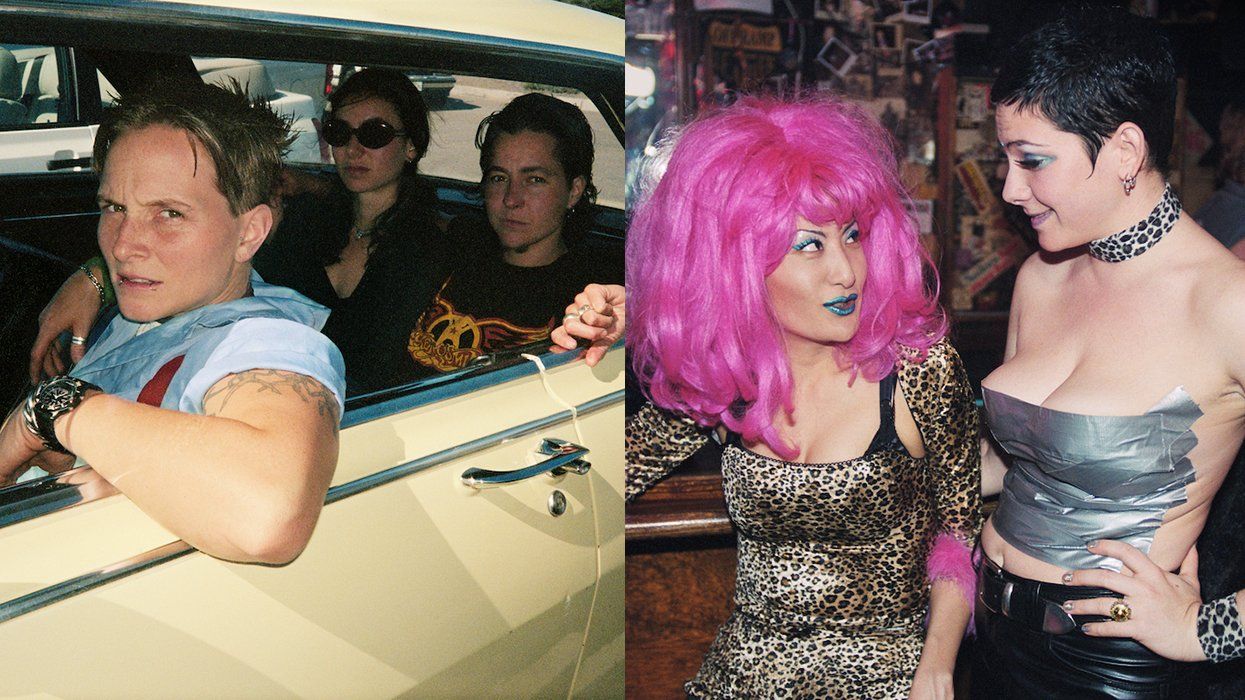Sharon Mattes, who in the 1990s lost custody of her son because she was in a same-sex relationship, has died at age 48.
She died January 21 in Richlands, N.C., but her death is just now being widely reported. The New York Times ran an obituary Friday. No cause of death was reported, but her family said she had been ill for some time.
When the custody case took place, Mattes was known by her birth name, Sharon Bottoms, and was living in Virginia. She had a son, Tyler Doustou, from an early marriage to Dennis Doustou. In 1992, when Tyler was a toddler, she moved in with April Wade. That led her mother, Kay Bottoms, to seek custody of the boy.
Kay Bottoms, who said she was "sickened" by her daughter's same-sex relationship, testified in court that Tyler "shouldn't be raised by lesbians and calling another woman Dada." She predicted that he would be "mentally and physically harmed because of their relationship." Sharon Bottoms in turn testified that she had been molested as a child by her mother's boyfriend, and Dennis Doustou, her former husband, said Sharon should keep custody of Tyler.
Henrico County Circuit Court Judge Buford Parsons "forced Sharon to explain on the witness stand what lesbians do in bed, and then Parsons ruled that Sharon was an unfit mother because she and Wade had oral sex, illegal in Virginia at the time," according to an Advocate account of the case. In 1993 he upheld a juvenile court judge's ruling awarding custody to Kay Bottoms.
"The ruling galvanized gay activists -- many of them lesbian moms like Sharon -- who held stroll-ins (rallies with empty baby strollers) and protests in Virginia and outside the state," Diane Anderson-Minshall wrote in a 2012 Advocate retrospective on significant court cases. The case "resonated ... because of the ordinariness of Sharon and Wade, two working-class women who wanted the American dream more than they sought headlines and activist mantles," Anderson-Minshall added.
The Virginia Court of Appeals overturning Parsons's ruling in 1994, returning custody to Sharon Bottoms, but the following year the state Supreme Court awarded custody to Kay Bottoms again. "We have previously said that living daily under conditions stemming from active lesbianism practiced in the home may impose a burden upon a child by reason of the 'social condemnation' attached to such an arrangement. We do not retreat from that statement." Justice A. Christian Compton wrote for the court majority. Still, the justices said that homosexuality on its own could not be a reason for denying custody, and the case went back to the juvenile court.
In 1996, there was a TV movie based on the case, with the principals' names changed, titled Two Mothers for Zachary." Valerie Bertinelli starred as the character based on Sharon Bottoms, Vanessa Redgrave as her mother, and Colleen Flynn as her partner. Sharon Bottoms's cooperation with the film contributed to a negative ruling from the juvenile court's Judge William Boice. She had made Tyler "the poster boy for a cause he could not and did not enlist," and because of this she was an unfit parent, he said. Bottoms never regained custody of her son.
Still, her case raised awareness of discrimination against gay, lesbian, and bisexual parents. When The Advocate asked her in 1996 if she had advice for them, she answered, "More power to them, and don't move to Virginia."
Her relationship with Wade ended a few years later, and in 2012 she married Bill Mattes, with whom she ran a kennel in North Carolina. He survives, along with her mother, her son, and a grandson.
Wade told the Times that Sharon Bottoms was dedicated to the cause of parental rights regardless of sexual orientation but was uncomfortable being a public figure. "There was a time period where we couldn't walk out of the front door," Wade said. "We rarely went out in public. And that was overwhelming for her."
Wade added that she believed the fight did some good: "I do think our case helped people and kind of catapulted gay rights in general. It helped push forward the need for change."















